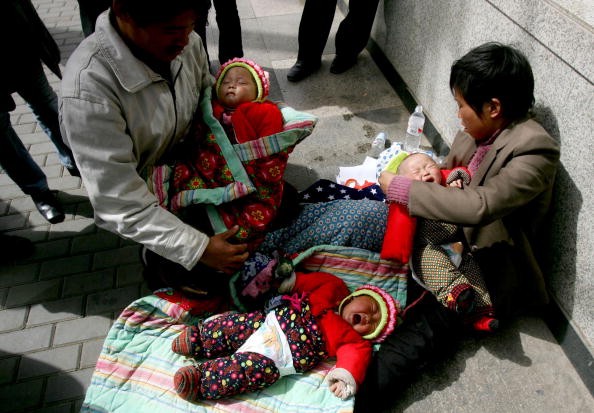Beijing’s new anti-begging campaign has found out that 17 out of 20 begging cases in the Chinese capital involved children, majority of which came from Minxian County in Gansu Province, the Global Times reported.
According to the Beijing Railway Corporation, about one-third of the children caught in the begging cases were from the village of Xiaozhai, also dubbed as the “no. 1 beggar village” in the country.
Pictures circulated social media sites of children begging in subways during the Spring Festival holidays. Authorities from the Beijing Railway Corporation said that they were taken by their parents to Beijing.
In response to the reports, the Minxian County government issued an official statement in their Sina Weibo account on Saturday, Feb. 11.
Based on the statement, the local government has already formed a special group to look into the cases, and to persuade the beggars to come home. In addition, education officials and the local civil affairs bureau plan on offering training programs to older beggars.
Beijing is no stranger to beggars, some of which come from different parts of the country. According to the Global Times, some of them have rented bungalows in villages. One example is Pingxifu Village in Changping District, which locals said is the current home of about ten beggars from Gansu Province.
“They were like office workers. Every day, they usually went to work at 8 am and got off at 6 pm,” the gatekeeper of Pingxifu Village told the Global Times.
“They would put on some make-up, especially on their children, and it was obvious to people they were poor and miserable,” he added.
One local also revealed one of their antics. “Some of them pretended to be disabled. When they got off the bus and entered the village, they would put away their canes,” he told the Global Times.
Gansu people from Xiaozhai have gained notoriety over the years for begging in Beijing’s streets. In 2004, the spotlight shone on them as national media outlets reportedly revealed their modus operandi: come and beg in northern China in the winter, southern China in the summer, and return home once it’s time to harvest their farms.






















